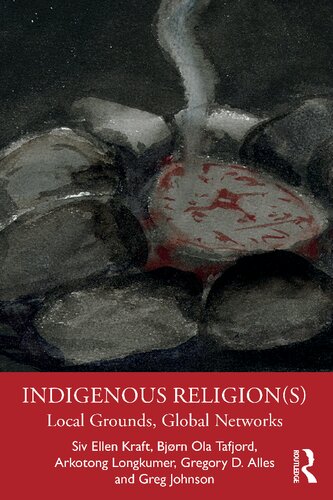

Most ebook files are in PDF format, so you can easily read them using various software such as Foxit Reader or directly on the Google Chrome browser.
Some ebook files are released by publishers in other formats such as .awz, .mobi, .epub, .fb2, etc. You may need to install specific software to read these formats on mobile/PC, such as Calibre.
Please read the tutorial at this link. https://ebooknice.com/page/post?id=faq
We offer FREE conversion to the popular formats you request; however, this may take some time. Therefore, right after payment, please email us, and we will try to provide the service as quickly as possible.
For some exceptional file formats or broken links (if any), please refrain from opening any disputes. Instead, email us first, and we will try to assist within a maximum of 6 hours.
EbookNice Team

Status:
Available0.0
0 reviewsWhat counts as 'indigenous religion' in today´s world? Who claims this category? What are the processes through which local entities become recognisable as 'religious' and 'indigenous'? How is all of this connected to struggles for power, rights and sovereignty?
This book sheds light on the contemporary lives of indigenous religion(s), through case studies from Sápmi, Nagaland, Talamanca, Hawai`i, and Gujarat, and through a shared focus on translations, performances, mediation and sovereignty. It builds on long term case-studies and on the collaborative comparison of a long-term project, including shared fieldwork. At the center of its concerns are translations between a globalising discourse (indigenous religion in the singular) and distinct local traditions (indigenous religions in the plural).
With contributions from leading scholars in the field, this book is a must read for students and researchers in indigenous religions, including those in related fields such as religious studies and social anthropology.